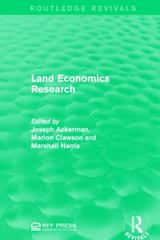Question
The Accord was a 1951 agreement between the Treasury Department and the Federal Reserve, which recognized the Fed's responsibility to conduct monetary policy.The controversy resulted
The Accord was a 1951 agreement between the Treasury Department and the Federal Reserve, which recognized the Fed's responsibility to conduct monetary policy.The controversy resulted from arguments about borrowing costs and inflation during the Korean War.What were the arguments?
a.The Treasury wanted interest rates to be low to hold down Treasury bond borrowing costs, while the Fed thought that low interest rates during a war would increase inflation.
b.The Treasury wanted tax rates to be low to increase Treasury bond earnings, while the Fed thought that low tax rates during a war would increase inflation.
c.The Treasury wanted interest rates to be high to increase Treasury bond earnings, while the Fed thought that high interest rates during a war would increase inflation
d.The Treasury wanted tax rates to be high to hold down Treasury borrowing costs, while the Fed thought that high taxes rates during a war would increase inflation.
In order the bring down inflation in 1968, the Johnson administration
a.finally passed the Kennedy tax cut, which reduced marginal tax rates.
b.imposed an income tax surcharge, which raised tax payments.
c.added a cost-of-living adjustment to Social Security benefits.
d.escalated its purchases of military equipment for the Vietnam War.
The U.S. economy did well in the second half of the 1990's, with unemployment falling below 5%, rapid real GDP growth and falling inflation.Which of the following is the best analysis of the reasons?
a.The 1990's saw falling defense spending, increasing retirements of older workers, and high interest rates.
b.The 1990's saw rapid technological advances to increase productivity, falling oil prices and low interest rates.
c.The 1990's saw lower taxes, increased government spending on infrastructure, and low interest rates.
d.The 1990's saw increased household savings, a rising exchange value of the dollar and high interest rates.
Step by Step Solution
There are 3 Steps involved in it
Step: 1

Get Instant Access to Expert-Tailored Solutions
See step-by-step solutions with expert insights and AI powered tools for academic success
Step: 2

Step: 3

Ace Your Homework with AI
Get the answers you need in no time with our AI-driven, step-by-step assistance
Get Started


